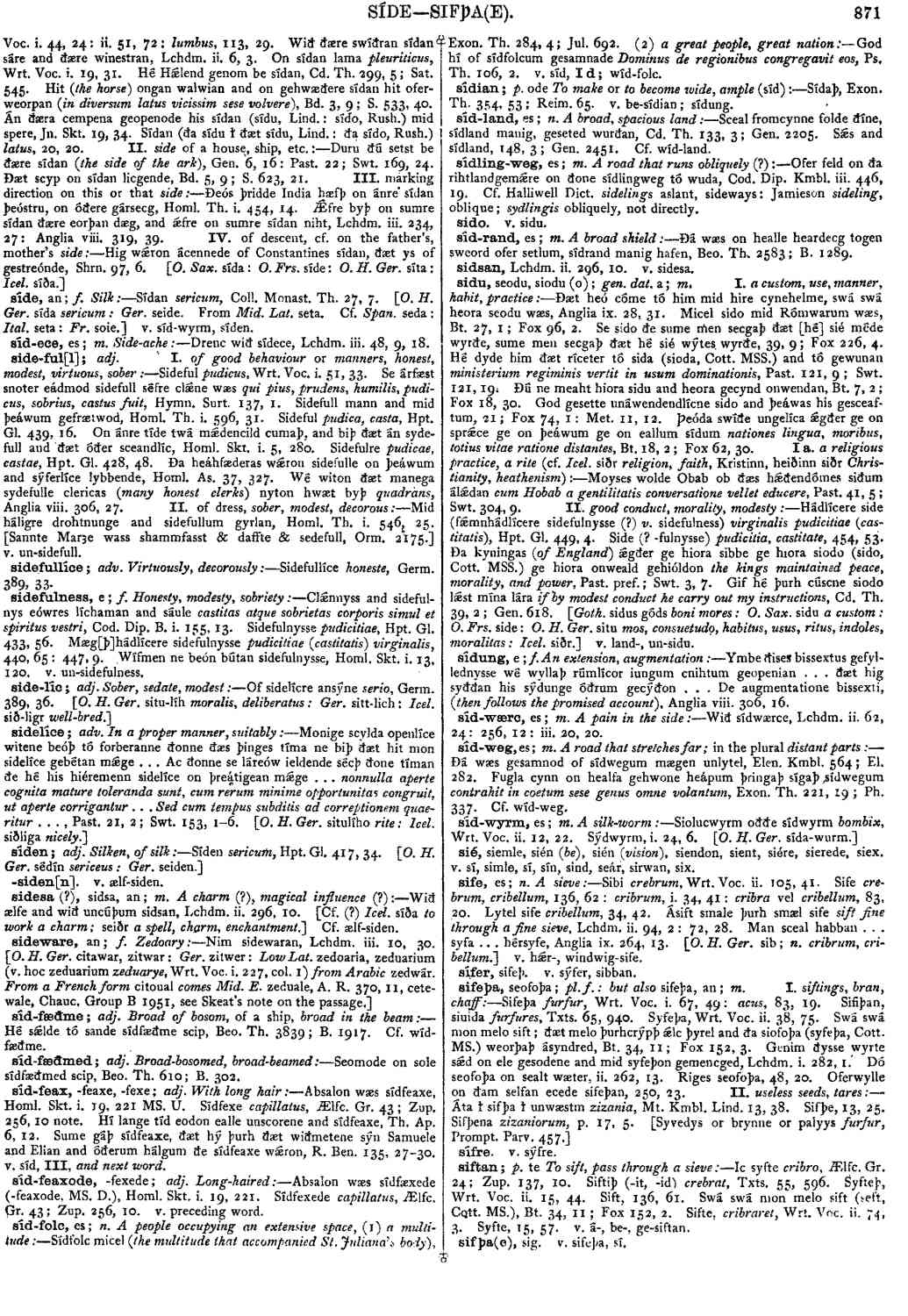sidu
- noun [ masculine ]
- Ðæt heó cóme tó him mid hire cynehelme, swá swá heora seodu wæs, Anglia ix. 28, 31.
-
Micel sido mid Rómwarum wæs,
- Bt. 27, 1 ; Fox 96, 2.
-
Se sido ðe sume men secgaþ ðæt [hé] sié méde wyrðe, sume men secgaþ ðæt hé sié wýtes wyrðe,
- 39, 9 ; Fox 226, 4.
-
Hé dyde him ðæt ríceter tó sida (sioda, Cott. MSS.) and tó gewunan
ministerium regiminis vertit in usum dominationis,
- Past. 121, 9 ; Swt. 121, 19;
-
Ðú ne meaht hiora sidu and heora gecynd onwendan
- , Bt. 7, 2 ; Fox 18, 30.
- God gesette unáwendendlícne sido and þeáwas his gesceaf*-*tum, 21 ; Fox 74, 1 : Met. 11, 12.
-
Þeóda swíðe ungelíca ǽgðer ge on sprǽce ge on þeáwum ge on eallum sídum nationes lingua, moribus, totius vitae ratione distantes, Bt. 18, 2 ; Fox 62, 30. Ia. a religious practice, a rite (cf. Icel. siðr religion, faith, Kristinn, heiðinn siðr Christianity, heathenism) :-- Moyses wolde Obab ob ðæs hǽðendómes siðum álǽdan
cum Hobab a gentilitatis conversatione vellet educere,
- Past. 41, 5 ; Swt. 304, 9.
-
Hádlícere side (fǽmnhádlícere sidefulnysse (?) v. sidefulness)
virginalis pudicitiae (castitatis ),
- Hpt. Gl. 449, 4.
-
Side (? -fulnysse)
pudicitia, castitate,
- 454, 53.
-
Ða kyningas (of England) ǽgðer ge hiora sibbe ge hiora siodo (sido, Cott. MSS.) ge hiora onweald gehióldon
the kings maintained peace, morality, and power,
- Past. pref. ; Swt. 3, 7.
-
Gif hé þurh cúscne siodo lǽst mína lára
if by modest conduct he carry out my instructions,
- Cd. Th. 39, 2 ; Gen. 618.
Bosworth, Joseph. “sidu.” In An Anglo-Saxon Dictionary Online, edited by Thomas Northcote Toller, Christ Sean, and Ondřej Tichy. Prague: Faculty of Arts, Charles University, 2014. https://bosworthtoller.com/27640.
Checked: 0